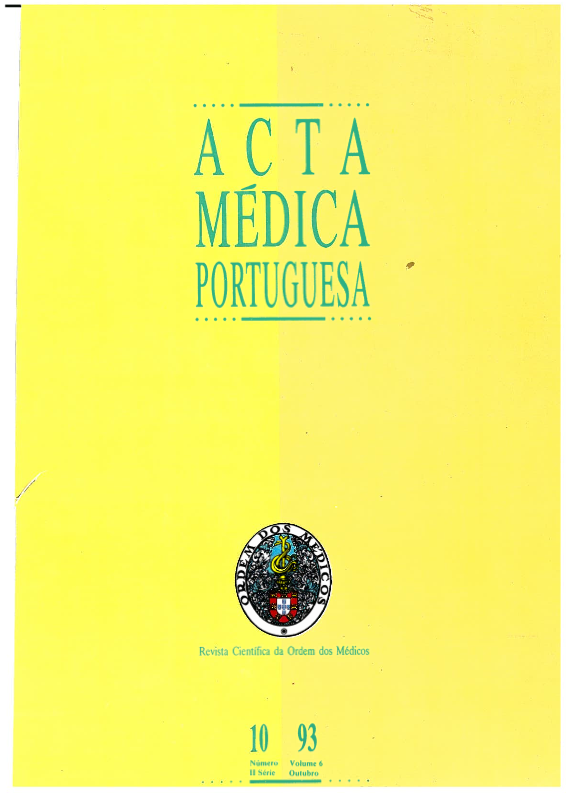Trombocitemia essencial. A propósito de um caso de acidente vascular cerebral.
DOI:
https://doi.org/10.20344/amp.3143Resumo
The authors report the case of a 60-year-old white man with a previous history of pulmonary tuberculosis, smoking habits, hypertension, intermittent claudication and erythromelalgia, admitted to our ward with an ischemic cerebral event. Initial laboratory evaluation documented thrombocytosis (platelet-950000/mm3) and discrete anemia. Additional studies confirmed the diagnosis of essential thrombocythemia, meeting all the criteria proposed by the Polycythemia Vera Study Group in 1986, after exclusion of the possible causes of reactive thrombocytosis. Therapy was initiated with alpha-2b interferon (3 MU/m2 subcutaneously three times a week) and aspirin. Platelet count control was obtained and the patient remained asymptomatic. Nine months later cutaneous toxicity obliged the discontinuance of alpha-interferon. Due to a continuous increase of platelet count, hydroxyurea was introduced. The patient is asymptomatic, with platelet counts < 500000/mm3, without toxicity manifestations, two years after diagnosis. The contribution of cardiovascular risk factors versus thrombocythemia in the pathogenesis of the ischemic cerebral event and the benefit of platelet count control are discussed.Downloads
Downloads
Como Citar
Edição
Secção
Licença
Todos os artigos publicados na AMP são de acesso aberto e cumprem os requisitos das agências de financiamento ou instituições académicas. Relativamente à utilização por terceiros a AMP rege-se pelos termos da licença Creative Commons ‘Atribuição – Uso Não-Comercial – (CC-BY-NC)’.
É da responsabilidade do autor obter permissão para reproduzir figuras, tabelas, etc., de outras publicações. Após a aceitação de um artigo, os autores serão convidados a preencher uma “Declaração de Responsabilidade Autoral e Partilha de Direitos de Autor “(http://www.actamedicaportuguesa.com/info/AMP-NormasPublicacao.pdf) e a “Declaração de Potenciais Conflitos de Interesse” (http://www.icmje.org/conflicts-of-interest) do ICMJE. Será enviado um e-mail ao autor correspondente, confirmando a receção do manuscrito.
Após a publicação, os autores ficam autorizados a disponibilizar os seus artigos em repositórios das suas instituições de origem, desde que mencionem sempre onde foram publicados e de acordo com a licença Creative Commons









